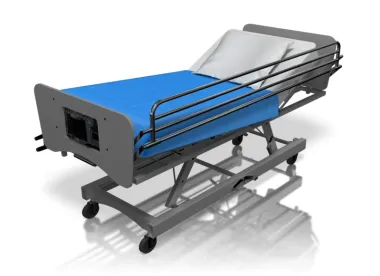“A mere difference of opinion between physicians, without more, is not enough to show falsity.”
In a 3-0 decision issued September 9, 2019, the U.S. Court of Appeals for the Eleventh Circuit affirmed a three-year-old district court ruling in United States v. AseraCare, Inc. that a Medicare claim for hospice services cannot be deemed false under the False Claims Act (FCA) based on a difference in clinical judgment. This decision – apparently the first circuit-level determination of the “standard for falsity [under the FCA] in the context of the Medicare hospice benefit” – will affect all hospice providers, as the Department of Justice (DOJ) and whistleblowers will not be able to rely on disagreements between physician opinions as the basis for establishing falsity under the FCA. Instead, the Eleventh Circuit instructs that a claim for hospice reimbursement “cannot be “false” – and thus cannot trigger FCA liability – if the underlying clinical judgment does not reflect an objective falsehood.” The Eleventh Circuit’s decision emphasizes that reasonable differences of opinion between physician reviewers of medical documentation are not sufficient to suggest that the judgments concerning a particular patient’s eligibility for Medicare’s hospice benefit, or any claims submitted based on such judgments, are false for purposes of the FCA.
Background
The defendants in this case (collectively, AseraCare) are a network of facilities that routinely provide hospice care to Medicare beneficiaries. The case began in 2008 when three qui tam relators filed an FCA complaint alleging AseraCare had submitted “unsubstantiated hospice claims.” DOJ subsequently intervened, and filed an amended complaint alleging that AseraCare had falsely certified certain patients as eligible for Medicare’s hospice benefit based on “erroneous clinical judgments,” and billed Medicare in violation of the false certification theory of FCA liability.
To bill Medicare for hospice services, a physician must “certify in writing, at the beginning of [each 60- or 90-day hospice] period, that the individual is terminally ill… based on the physician’s… clinical judgment regarding the normal course of the individual’s illness.” “Terminally ill” means a medical prognosis that the patient’s life expectancy is 6 months or less, however the Centers for Medicare & Medicaid Services (CMS) have recognized that “[p]redicting life expectancy is not an exact science.” Therefore, Medicare permits reimbursement for hospice care that extends beyond 6 months, as long as the patient is recertified as terminally ill each 60- or 90-day period during which he or she remains in hospice. A physician’s certification must be accompanied by medical documentation that supports the prognosis that a patient is terminally ill.
In this case, the government took the position that AseraCare oversaw a corporate climate that used “aggressive quotas” for patient admissions and that “discouraged meaningful physician involvement in eligibility determinations.” DOJ identified 2,180 patients who received over 365 continuous days of hospice care from AseraCare, and then conducted a direct medical review of a 223 patient sample. To establish falsity concerning the certification of those patients as eligible for hospice care, DOJ introduced and relied upon the opinion of a medical expert who testified that 123 of the patients at issue, in his view, were not terminally ill at the time of certification. After the district court initially denied a motion for summary judgment filed by AseraCare, at trial a jury determined that AseraCare had submitted false claims for 104 of the 123 patients. However, the district court subsequently ordered a new trial in response to a post-verdict motion for judgment as a matter of law filed by AseraCare premised on mistaken jury instructions concerning the standard for falsity under the FCA. The district court then sua sponte – i.e., of its own accord – reconsidered and ultimately granted summary judgment to AseraCare after supplemental briefing. In granting summary judgment for AseraCare, the district court observed that this “case boils down to conflicting views of physicians about whether the medical records support AseraCare’s certifications that the patients at issue were eligible for hospice care.” The district court ruled that a difference of opinion between hospice certifying physicians and medical experts regarding patients’ hospice eligibility alone is not enough to “prove falsity without further evidence of an objective falsehood.”
Eleventh Circuit Decision
The Eleventh Circuit agreed with the district court’s FCA analysis, and thus with its order for a new trial, although it reversed the court’s summary judgment decision due to a failure to consider all evidence on the record concerning falsity. The Eleventh Circuit examined the text and history of Medicare’s hospice rules and regulations and found that the legal framework does not “state or imply that the patient’s medical records must unequivocally demonstrate to an unaffiliated physician, reviewing the records after the fact, that the patient was likely to die within six months… [r]ather, the framework asks a physician responsible for the patient’s care to exercise his or her judgment as to the proper interpretation of the patient’s medical records.” The Eleventh Circuit concluded that a physician’s clinical judgment “dictates eligibility as long as it represents a reasonable interpretation of the relevant medical records” and should be granted deference.
Thus, “when a hospice provider submits a claim that certifies that a patient is terminally ill ‘based on the physician’s or medical director’s clinical judgment,” such a claim cannot be subject to liability under the FCA unless the underlying judgment reflects “an objective falsehood.” In connection with this standard, the Eleventh Circuit provides examples of circumstances that could indicate an objective falsehood, including where:
-
The certifying physician does not examine the patient’s underlying medical records;
-
The certifying physician did not subjectively believe that the patient was terminally ill; or
-
If expert evidence proves that no reasonable physician could have concluded that a patient was terminally ill, based on the relevant medical records.
In the absence of evidence of an objective falsehood, an FCA claim is likely fail as a matter of law based on the Eleventh Circuit’s holding in this case.
Why this Matters
The AseraCare decision is likely to have a widespread impact on FCA litigation of hospice claims. Throughout the Eleventh Circuit, DOJ and relators will have to meet a higher evidentiary standard to prove falsity, which preserves deference to the clinical judgment of the treating physician. While the AseraCare ruling specifically applies in the context of hospice reimbursement, it also provides important analysis of the probity of differing medical opinions and provider judgment in the context of FCA claims, which could in turn impact other cases and investigations where objective falsehood represents the standard for attachment of FCA liability.




 />i
/>i

